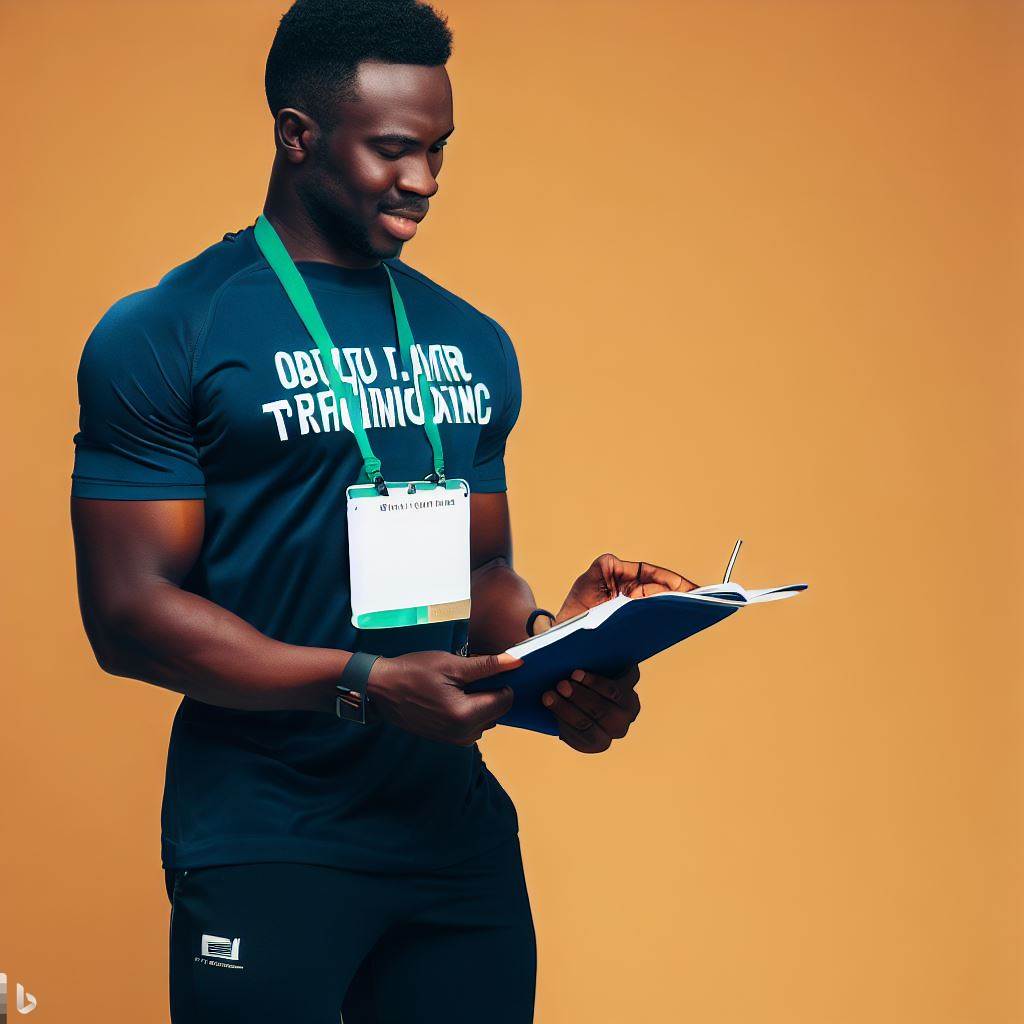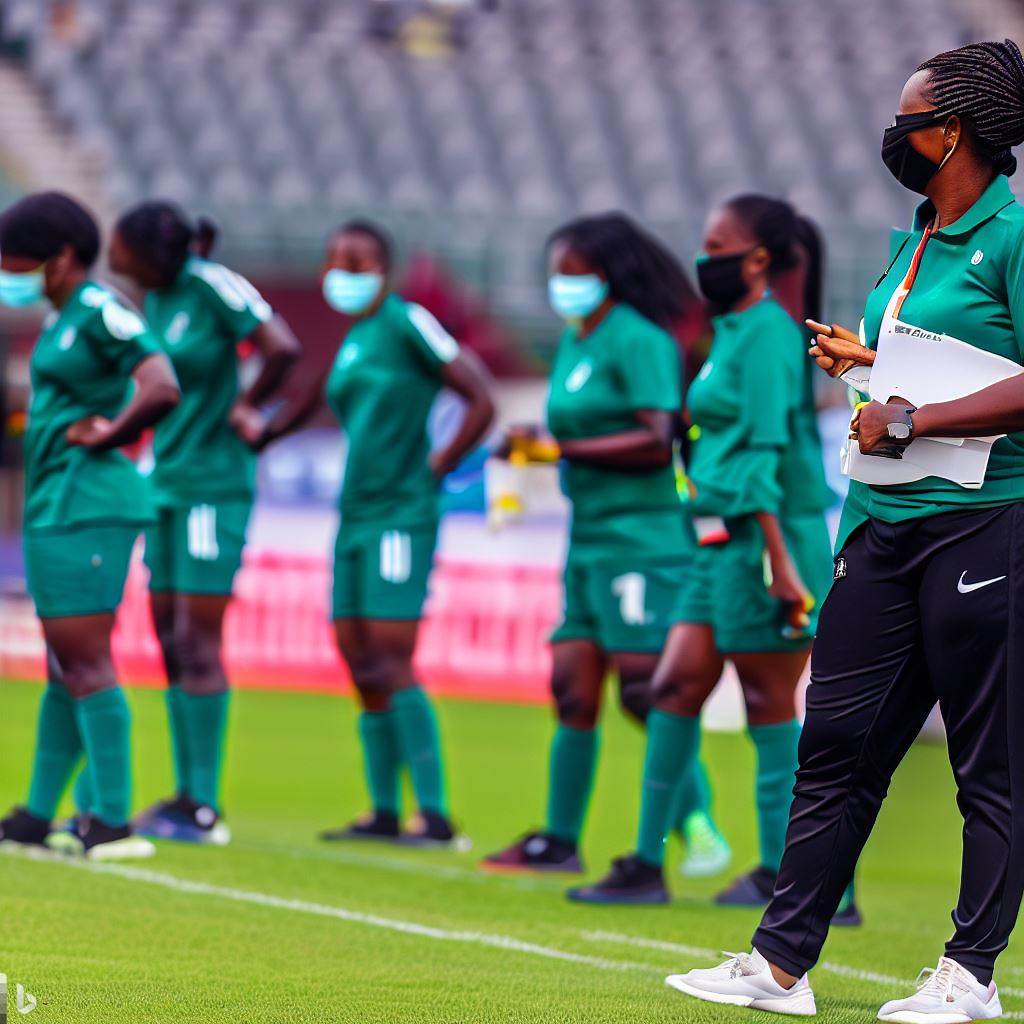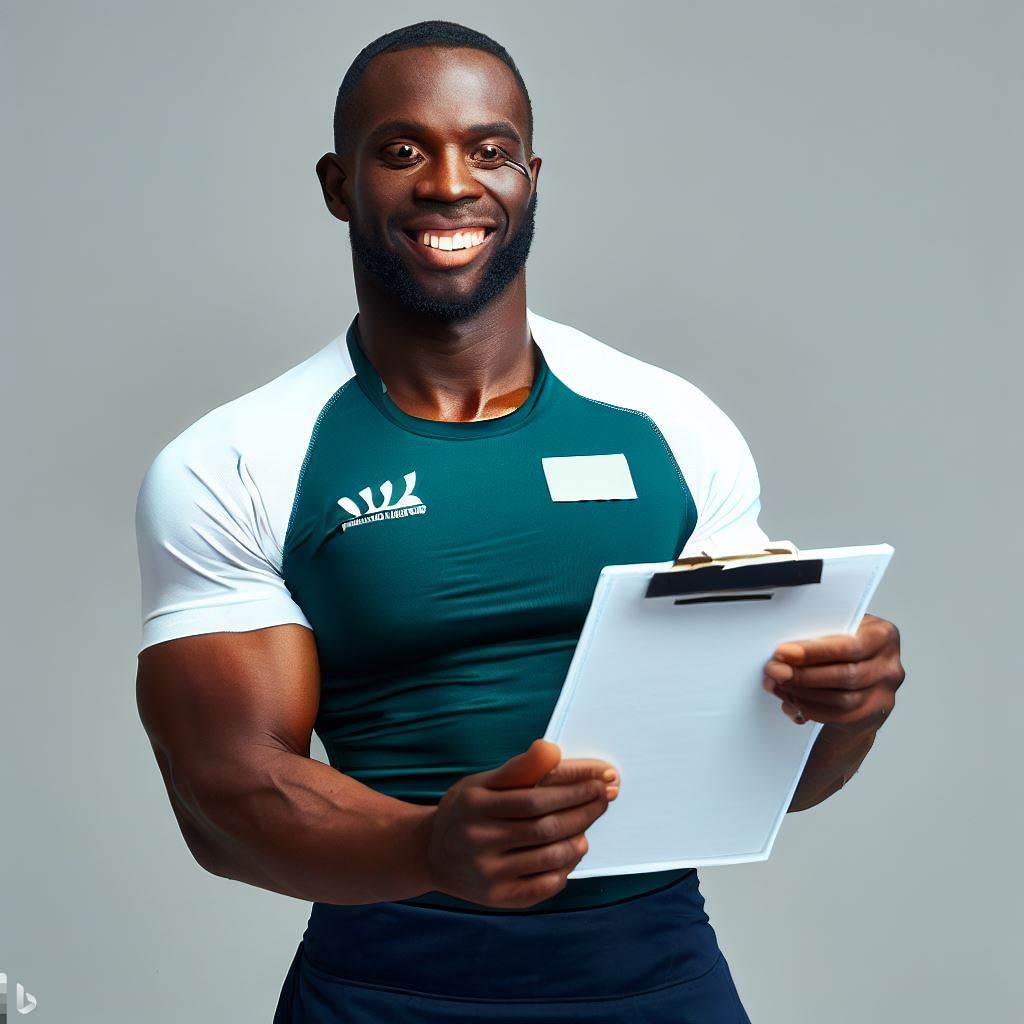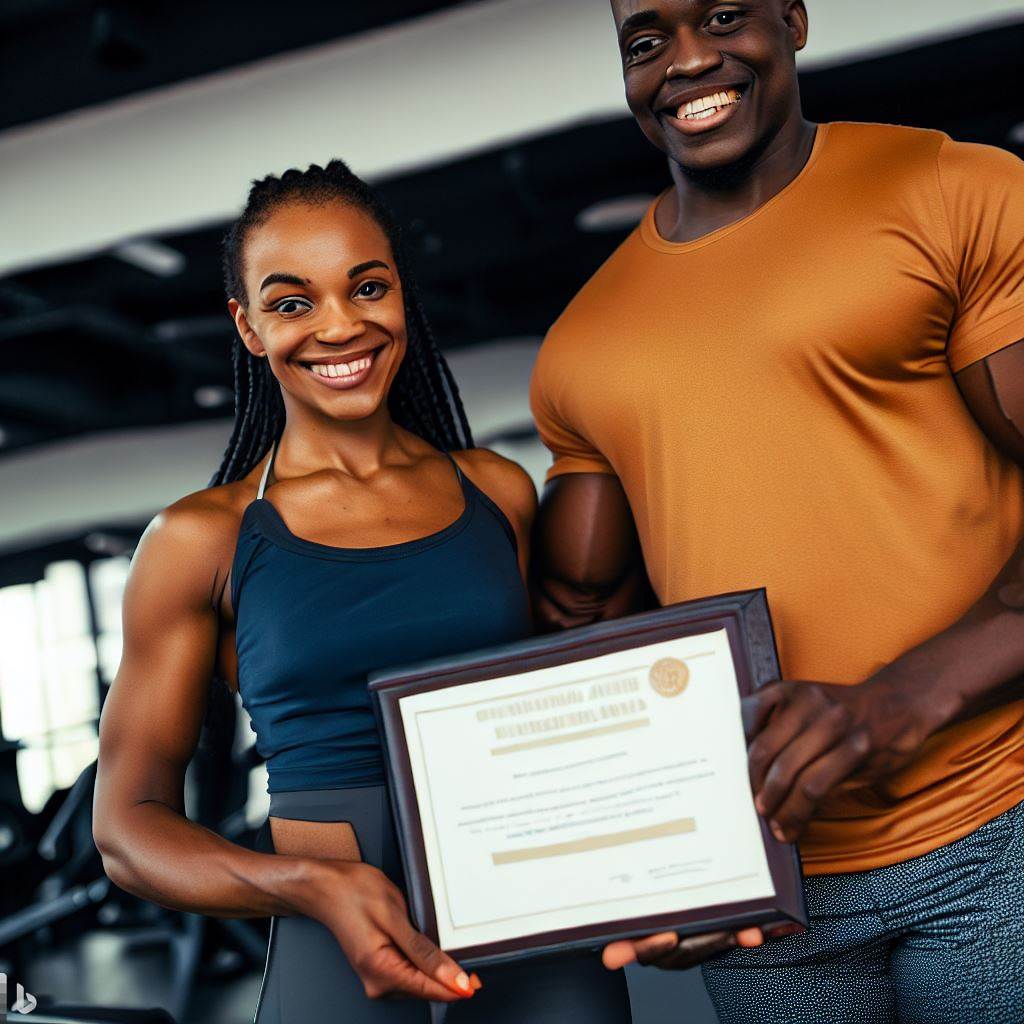Introduction
In Nigeria, women in sports leadership, particularly athletic directors, have emerged as influential figures in driving change and promoting gender equality.
This article explores the significance of discussing this topic and its relevance to Nigeria’s sports landscape.
Brief overview of the topic
The role of women in sports leadership in Nigeria has evolved over the years.
With more women taking up positions as athletic directors, they have become catalysts for positive change, championing gender equality, and empowering female athletes.
Importance of discussing women in sports leadership in Nigeria
Highlighting the achievements and challenges faced by women in sports leadership in Nigeria is crucial.
By examining their experiences, we can shed light on the progress made, identify areas for improvement, and inspire other women to pursue leadership roles within the sports industry.
The inclusion of women in sports leadership positively impacts the overall development of sports in Nigeria.
By encouraging diversity, equal opportunities, and female representation, we can create a more dynamic and inclusive sports landscape, fostering talent, and creating pathways for success.
Furthermore, discussing women in sports leadership serves as a platform to celebrate the accomplishments of female athletic directors, showcasing their resilience, leadership abilities, and commitment to driving positive change.
By highlighting their stories and achievements, we can inspire future generations of women to pursue careers in sports administration, creating a sustainable pipeline of female leaders.
Essentially, recognizing and discussing the role of women in sports leadership, specifically athletic directors in Nigeria, is essential for promoting gender equality, inspiring aspiring leaders, and fostering a more inclusive sports landscape.
Historical Perspective of Women in Sports Leadership in Nigeria
- Women in Nigeria have long played active roles in traditional sports, albeit without formal leadership positions.
- Historically, women have been excluded from sports leadership due to societal norms and cultural prejudices.
- The patriarchal nature of Nigerian society limited women’s opportunities in sports leadership.
- Traditional Nigerian sports primarily focused on male participation, leaving women in supportive roles.
- However, women gradually began breaking barriers and asserting their presence in sports leadership.
- The introduction of Western sports during colonial rule contributed to a shift in societal perceptions.
- Women started participating in Western sports, showcasing their potential to excel in leadership roles.
- Nigerian women athletes like Chioma Ajunwa and Mary Onyali gained international recognition, inspiring others.
Role of Women in Traditional Nigerian Sports
- In traditional Nigerian sports, women have traditionally served as performers, musicians, and cheerleaders.
- They played vital roles in cultural dances, songs, and other performances associated with sports events.
- Women provided the necessary emotional support and encouragement to male athletes during competitions.
- Despite not holding formal leadership positions, women’s contributions to traditional sports were significant.
- Their involvement fostered community cohesion, promoted cultural heritage, and showcased their talents.
- Women’s active participation in traditional Nigerian sports laid the foundation for their future leadership roles.
Barriers Faced by Women in Pursuing Sports Leadership Roles
- Women faced numerous challenges in pursuing sports leadership roles due to gender bias and discrimination.
- Societal stereotypes and prejudices often undermined women’s capabilities in sports leadership.
- Lack of representation and mentorship opportunities limited women’s access to leadership positions.
- Traditional beliefs that sports administration is a male domain deterred women from pursuing such roles.
- Discriminatory practices, such as unequal pay and limited resources, hindered women’s progress in leadership.
- Women often had to prove themselves through exceptional performance and dedication to gain recognition.
- Balancing family responsibilities with sports leadership roles presented additional barriers for women.
Progress Made in Recent Years
- In recent years, significant progress has been made in promoting women in sports leadership in Nigeria.
- Organizations and institutions have recognized the need for gender equality in sports leadership roles.
- Increased advocacy efforts and awareness campaigns have highlighted the importance of women’s inclusion.
- Various initiatives, such as mentorship programs and leadership training, have been introduced.
- The appointment of women as athletic directors in Nigerian universities is a notable achievement.
- Nigerian women athletes have become role models, motivating more women to pursue sports leadership roles.
- The growing recognition of women’s capabilities has led to improved opportunities and representation.
- However, more needs to be done to overcome deep-rooted societal biases and ensure equal opportunities.
Basically, the historical perspective of women in sports leadership in Nigeria reveals the progression from exclusion to increased inclusion.
Traditional Nigerian sports initially limited women’s participation, but gradual societal shifts allowed them to showcase their abilities.
Despite barriers and discrimination faced by women, recent years have witnessed significant progress in promoting gender equality in sports leadership roles.
Continued efforts are necessary to break down the remaining barriers and fully embrace women’s contributions in sports leadership.
Read: Advancing Your Career as an Athletic Director in Nigeria
Current status of women in sports leadership in Nigeria
- Limited representation: Women in Nigeria face significant challenges in achieving leadership positions in sports.
- Cultural barriers: Traditional gender norms and stereotypes hinder women’s progress in sports leadership roles.
- Lack of opportunities: Women often struggle to access the same opportunities and resources as their male counterparts.
Statistics on the Representation of Women as Athletic Directors
- Underrepresentation: Only a small percentage of athletic director positions in Nigeria are held by women.
- Gender disparity: Women make up a mere fraction of the overall athletic director population in the country.
- Imbalanced ratio: The ratio of male to female athletic directors remains heavily skewed in favor of men.
Challenges Faced by Women in Leadership Positions
- Gender bias and discrimination: Women encounter prejudice and bias when seeking leadership roles in sports.
- Limited support networks: Lack of mentorship and networking opportunities hinder women’s professional growth in this field.
- Balancing career and family: Juggling work and family responsibilities poses unique challenges for women in leadership positions.
Success Stories of Women in Sports Leadership
- Chioma Ajunwa: The first Nigerian woman to win an Olympic gold medal has become an influential figure in sports administration.
- Dr. Ngozi Okonjo-Iweala: A former finance minister and the first female Director-General of the World Trade Organization, she advocates for women’s involvement in sports leadership.
- Princess Bola Jegede: An accomplished sports administrator, she has made significant contributions to the development of women’s sports in Nigeria.
In essence, the current status of women in sports leadership in Nigeria shows a lack of representation and numerous challenges.
However, there are success stories like Chioma Ajunwa, Dr. Ngozi Okonjo-Iweala, and Princess Bola Jegede, who have broken barriers and paved the way for future generations of women in sports leadership.
It is essential to address the existing barriers and provide equal opportunities for women to excel in this field.
By empowering and supporting women, Nigeria can foster a more inclusive and diverse sports leadership landscape.
Read: Qualifications Needed for Athletic Directors in Nigeria
Factors contributing to the underrepresentation of women in sports leadership
Gender stereotypes and cultural biases significantly hinder women’s presence in sports leadership roles, perceiving sports as male-dominated.
These biases form barriers for female advancement. Discrimination and bias in the industry perpetuate underrepresentation.
Organizations favor male candidates, denying women significant contributions. Limited access to resources and networks further restricts progress.
Women struggle to acquire resources and connections. Male-dominated networks exclude women, hindering growth.
To combat these issues, efforts must challenge norms and redefine gender roles. Diversity in decision-making can dismantle biases.
Organizations should prioritize avenues for women. Mentorship, scholarships, and training programs can bridge resource gaps.
Encouraging collaboration and networking among women is crucial. Strong alliances can advocate for collective change. Addressing these factors is key to achieving balanced sports leadership in Nigeria.
Read: Networking for Athletic Directors: Opportunities in Nigeria

Efforts to promote gender equity in sports leadership in Nigeria
- Increasing representation of women in leadership positions in sports organizations.
- Creating awareness about the importance of gender diversity and inclusion in sports leadership.
- Implementing policies and initiatives that promote equal opportunities for women in sports leadership.
- Providing training and development programs focused on developing leadership skills for women in sports.
- Encouraging women to participate in sports and providing platforms for them to showcase their leadership abilities.
- Supporting research and advocacy efforts that highlight the benefits of gender equity in sports leadership.
Initiatives and programs supporting women in sports leadership
- Establishment of Women in Sports Leadership Associations (WSLA) to provide mentorship and support.
- Creating networking opportunities for women in sports leadership through conferences and seminars.
- Offering scholarships and grants specifically for women pursuing careers in sports leadership.
- Organizing workshops and training sessions focused on enhancing leadership skills for women in sports.
- Developing mentorship programs that pair women in sports leadership with experienced mentors.
- Providing resources and support for work-life balance for women in sports leadership.
Role of sports organizations in fostering gender diversity
- Developing and implementing gender equity policies and guidelines to ensure equal opportunities for all.
- Creating a culture that values and embraces gender diversity in sports leadership.
- Providing leadership training and development programs specifically designed for women.
- Establishing diversity and inclusion committees to address gender bias and promote equality.
- Encouraging women to participate in decision-making processes and leadership roles within sports organizations.
- Promoting transparency and accountability in the selection and promotion of sports leaders.
Importance of mentorship and sponsorship for women in sports leadership
- Mentorship provides guidance, support, and encouragement for women to succeed in sports leadership roles.
- Mentors can share their experiences and knowledge, helping women navigate challenges and overcome barriers.
- Sponsorship offers women opportunities for career advancement by advocating for their visibility and promotion.
- Sponsors can provide valuable resources and connections to help women excel in sports leadership.
- Mentorship and sponsorship contribute to the retention and advancement of women in sports leadership positions.
- They help break the cycle of gender imbalance by empowering women and changing organizational attitudes.
Read: Strength Coaching: A Women’s Perspective in Nigeria
Benefits of increasing the number of women in sports leadership roles
Increasing the number of women in sports leadership roles has numerous benefits:
- Diverse Perspectives and Improved Decision-Making: Having women in leadership positions brings diverse perspectives to the table, resulting in better decision-making. Women bring unique insights and experiences.
- Positive Impact on Women and Girls in Sports: When women hold leadership positions, it sends a powerful message to women and girls participating in sports.
- Increased Representation and Role Models for Future Generations: By increasing the number of women in sports leadership, we provide more role models for future generations. Seeing women in positions of power can inspire young girls to pursue their dreams.
Furthermore, these benefits specifically apply to athletic directors in Nigeria:
- Diverse Perspectives and Improved Decision-Making: Nigeria, like many other countries, is a diverse nation with various cultures, traditions, and backgrounds.
- Positive Impact on Women and Girls in Sports: The presence of female athletic directors in Nigeria can inspire and empower women and girls across the country to engage in sports. By witnessing women leading successful athletic programs, they are motivated to participate and unlock their full potential in sports, breaking gender stereotypes and encouraging equal opportunities for all.
- Increased Representation and Role Models for Future Generations: In Nigeria, where gender inequalities persist, having women as athletic directors provides crucial representation for future generations.
Overall, increasing the number of women in sports leadership roles, particularly as athletic directors in Nigeria, offers significant benefits.
The diversity of perspectives brings forth improved decision-making, positively impacting women and girls in sports.
Moreover, increased representation and the presence of role models inspire future generations to pursue leadership positions, challenging gender norms and promoting equality.
By embracing and supporting women in sports leadership, Nigeria can foster a more inclusive and thriving sports industry for all.
Delve into the Subject: Global Events Coverage: A Nigerian Broadcaster’s View
Conclusion
In summary, this article has shed light on the topic of Women in Sports Leadership: Athletic Directors in Nigeria.
Throughout the sections, we discussed the challenges and barriers faced by women in this field, as well as the progress and achievements made by some trailblazing women.
We highlighted the importance of promoting gender equality and diversity within sports leadership positions, as it not only benefits women but also leads to better decision-making and overall success in sports organizations.
To recap, we explored the societal and cultural factors that hinder women’s advancement in sports leadership roles, such as traditional gender roles and biases.
However, we also showcased inspiring stories of determined women who have broken through these barriers and have become successful athletic directors in Nigeria.
In order to further promote women in sports leadership in Nigeria, it is essential to continue advocating for gender equity, challenging stereotypes, and providing equal opportunities for women to excel in this field.
Sports organizations, educational institutions, and governing bodies should work together to create mentorship programs, leadership development initiatives, and networking opportunities specifically for women in sports.
By increasing representation and providing support, we can empower more women to take up leadership roles in sports organizations and contribute to the growth and development of Nigerian sports.
It is crucial that we recognize the immense potential of women and foster an environment that allows them to thrive and excel as athletic directors.
Let us all take action and actively promote women in sports leadership in Nigeria.
Together, we can break down barriers and create a more inclusive and diverse sports industry for future generations.




